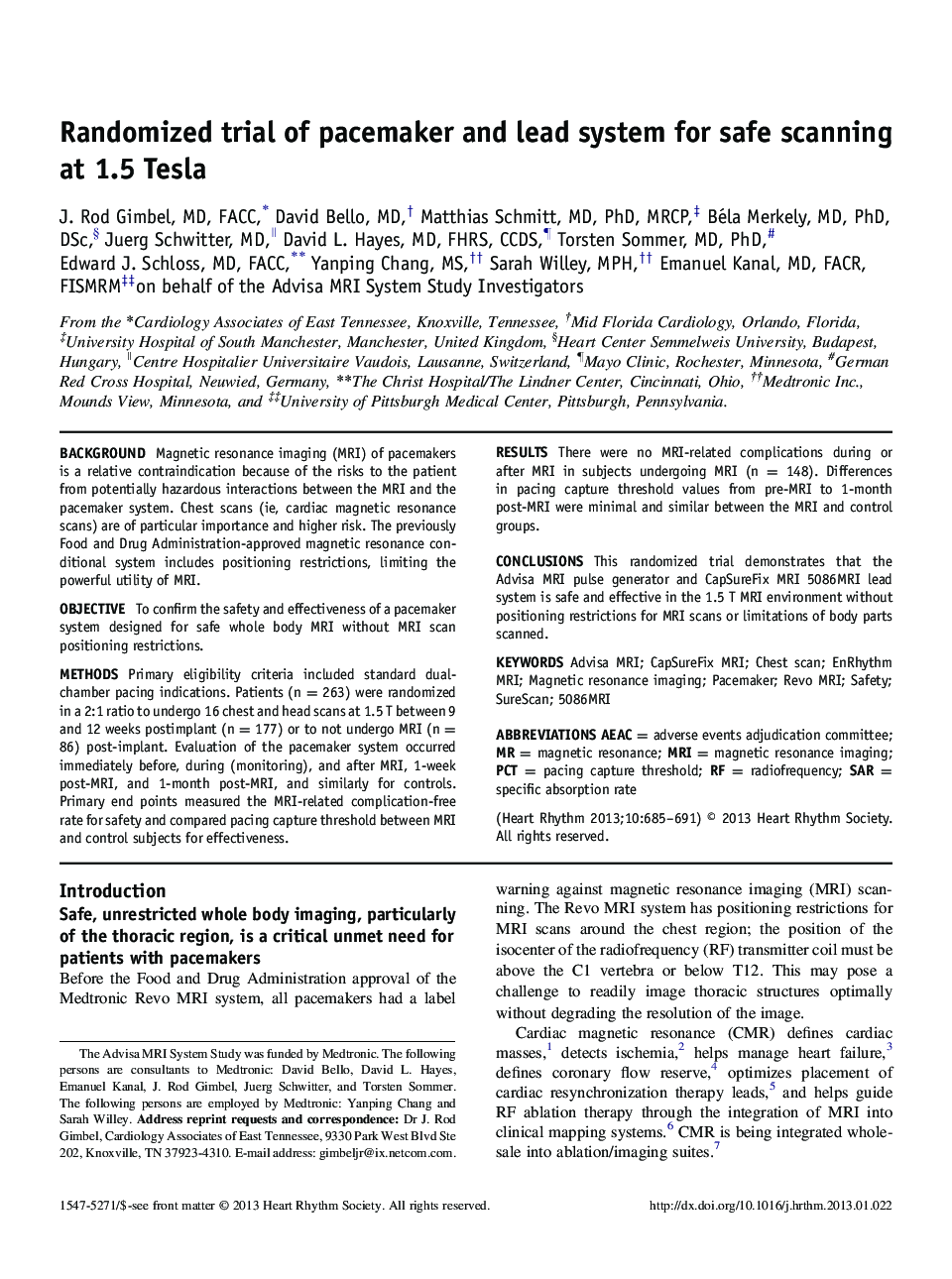| Article ID | Journal | Published Year | Pages | File Type |
|---|---|---|---|---|
| 5961419 | Heart Rhythm | 2013 | 7 Pages |
BackgroundMagnetic resonance imaging (MRI) of pacemakers is a relative contraindication because of the risks to the patient from potentially hazardous interactions between the MRI and the pacemaker system. Chest scans (ie, cardiac magnetic resonance scans) are of particular importance and higher risk. The previously Food and Drug Administration-approved magnetic resonance conditional system includes positioning restrictions, limiting the powerful utility of MRI.ObjectiveTo confirm the safety and effectiveness of a pacemaker system designed for safe whole body MRI without MRI scan positioning restrictions.MethodsPrimary eligibility criteria included standard dual-chamber pacing indications. Patients (n = 263) were randomized in a 2:1 ratio to undergo 16 chest and head scans at 1.5 T between 9 and 12 weeks postimplant (n = 177) or to not undergo MRI (n = 86) post-implant. Evaluation of the pacemaker system occurred immediately before, during (monitoring), and after MRI, 1-week post-MRI, and 1-month post-MRI, and similarly for controls. Primary end points measured the MRI-related complication-free rate for safety and compared pacing capture threshold between MRI and control subjects for effectiveness.ResultsThere were no MRI-related complications during or after MRI in subjects undergoing MRI (n = 148). Differences in pacing capture threshold values from pre-MRI to 1-month post-MRI were minimal and similar between the MRI and control groups.ConclusionsThis randomized trial demonstrates that the Advisa MRI pulse generator and CapSureFix MRI 5086MRI lead system is safe and effective in the 1.5 T MRI environment without positioning restrictions for MRI scans or limitations of body parts scanned.
